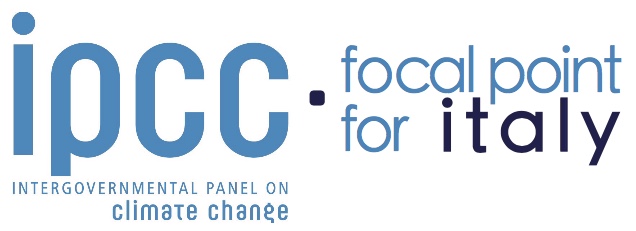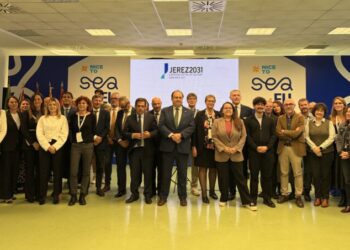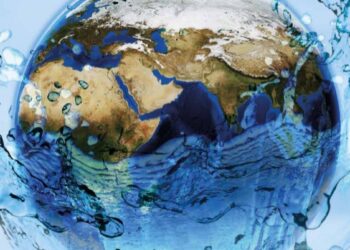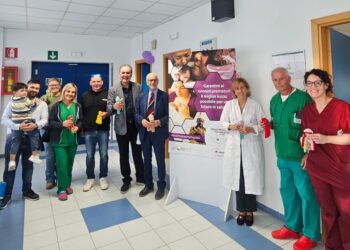Tutti i nomi: ricercatori e centri di ricerca italiani, enti internazionali con sede in Italia, scienziati italiani con affiliazioni straniere. Ecco i dettagli del contributo della comunità della ricerca scientifica italiana sui cambiamenti climatici al prossimo rapporto dell’IPCC.
L’IPCC ha diramato la lista di autori e autrici che lavorano alla redazione del prossimo rapporto di Valutazione, il settimo (AR7), la pubblicazione che periodicamente rappresenta la più aggiornata ed esaustiva rassegna sullo stato dell’arte della conoscenza scientifica globale sui cambiamenti climatici.
I tre gruppi di lavoro dell’IPCC coinvolgono una comunità scientifica internazionale che conta 664 autori provenienti da 111 paesi e che si misurano nella scrittura e nella redazione del Report nei ruoli di Coordinating Lead Authors, Lead Authors e Review Editors.
Tra i 3.771 candidati nominati dai governi e dalle organizzazioni osservatrici dell’IPCC, l’Ufficio di presidenza dell’IPCC ha poi selezionato la lista finale nella quale c’è una rilevante presenza della ricerca italiana con scienziati e scienziate di centri di ricerca italiani, altri che lavorano in contesti stranieri e internazionali, altri ancora che lavorano per enti internazionali con sede in Italia. Ecco chi sono nel dettaglio.
Centri di ricerca e università del nostro paese partecipano alla redazione del settimo rapporto IPCC nei diversi gruppi di lavoro.
Nel Working Group 1, che affronta le basi fisiche del cambiamento climatico, Katinka Bellomo (Università di Padova) contribuisce al capitolo 6 “Global projections of Earth system responses across time scales”, Virna Loana Meccia (CNR-ISAC) lavora al capitolo 8 dal titolo “Abrupt changes, low-likelihood high impact events and critical thresholds, including tipping points, in the Earth system”.
Per quanto riguarda il Working Group 2, ossia quella parte del rapporto dedicata ad approfondire i temi degli impatti, dell’adattamento e delle vulnerabilità, Anna Pirani (CMCC – Centro Euro-Mediterraneo sui Cambiamenti Climatici) contribuisce al capitolo iniziale dal titolo “Point of departure, framing and key concepts”; Shobha Poudel (FEEM – Fondazione Eni Enrico Mattei) per il capitolo 9 sull’Asia.
Al Working Group 3 che si occupa del volume sulla mitigazione dei cambiamenti climatici e tutto quello che riguarda la riduzione delle emissioni e della concentrazione di gas a effetto serra in atmosfera, contribuiscono Valentina Bosetti (Università Bocconi e CMCC – Centro Euro-Mediterraneo sui Cambiamenti Climatici) per il capitolo 3 dal titolo “Projected futures in the context of sustainable development and climate change”, Shouro Dasgupta (CMCC – Centro Euro-Mediterraneo sui Cambiamenti Climatici) per il capitolo 5 che è dedicato a “Enablers and barriers”, Massimo Tavoni (CMCC – Centro Euro-Mediterraneo sui Cambiamenti Climatici e Politecnico di Milano) è Review Editor per il capitolo 7 dedicato alla finanza climatica, mentre Soheil Shayegh (CMCC – Centro Euro-Mediterraneo sui Cambiamenti Climatici) è tra gli autori del capitolo 15 in cui si approfondiranno i temi della rimozione di CO2 dall’atmosfera con il titolo “Potentials, limits, and risks of Carbon Dioxide Removal (CDR)”.
Erika Coppola (The Abdus Salam International Centre for Theoretical Physics che ha sede a Trieste) è Coordinating Lead Author nel WG1 per il capitolo 7 “Projections of regional climate and extremes” a cui contribuisce anche Alessandro Dosio (JRC – Joint Research Centre della Commissione Europea) in qualità di Review Editor. Sempre da JRC con sede ad Ispra, arrivano i contributi nel WG3 di Monica Crippa (capitolo 2 “Past and current anthropogenic emissions and their drivers”), Anu Korosuo (capitolo 13 “Agriculture, Forestry, and Other Land Uses – AFOLU) e, nel WG2, Diana Vieira nel capitolo 14 “Terrestrial, freshwater and cryospheric biodiversity, ecosystems and their services”. Da altri centri internazionli con sede in Italia figurano i contributi di Andreea Cristina Nowak (Biodiversity International/CGIAR) nerl capitolo 17 “Agriculture, food, forestry, fibre and fisheries”, Houria Djoudi (FAO) nel capitolo 14 “Terrestrial, freshwater and cryospheric biodiversity, ecosystems and their services”, Neha Rai (FAO) per le linee guida tecniche.
Infine, i nomi italiani con affiliazioni estere e internazionali che contribuiscono ai diversi volumi del rapporto sono Daniele Visioni (Cornell University), autore nel WG1 del capitolo 9 “Earth system responses under pathways towards temperature stabilization, including overshoot pathways”.
Nel WG2 Stefano Battiston (Università di Zurigo) e Raffaele Della Croce (Imperial College University) contribuisce al capitolo 6 sulla finanza legata all’adattamento ai cambiamenti climatici, Edoardo Borgomeo (Università di Cambridge) al capitolo 16 dedicato all’acqua e Marco Billi (Università del Cile) al capitolo 4 “Adaptation options and conditions for accelerating action”.
Nel WG3 Paolo Bertoldi (Commissione Europea) contribuisce al capitolo 12 su “Buildings and human settlements”. Altri contributi vedono la partecipazione di e Nadia Cassotta (Università di Aalborg) nel capitolo 4 “Sustainable development and mitigation”, mentre al capitolo 7 dedicato alla finanza climatica contribuiscono anche Nadia Ameli (University College London) e Irene Monasterolo (Università di Utrecht).
La lista completa degli autori IPCC è disponibile online sul sito dell’IPCC.
Questi nomi si aggiungono inoltre a quelli di scienziati e scienziate che rappresentano la ricerca italiana in altri due report che fanno parte del ciclo di AR7 dell’IPCC e sono lo Special Report on Climate Change and Cities e il 2027 Methodology Report on Inventories for Short-lived Climate Forcers i cui contributi italiani sono menzionati in questa pagina del sito del Focal Point IPCC per l’Italia.

IPCC – Italian research on climate change in the Seventh IPCC Report – AR7
All the names marking the contribution of Italy’s scientific research system in the IPCC AR7: Italian researchers and research centers, international organizations based in Italy, and Italian scientists with foreign affiliations.
The IPCC has released the list of authors working on the upcoming Seventh Assessment Report (AR7), which will provide the most comprehensive and up-to-date review of global scientific knowledge on climate change.
The three IPCC working groups comprise an international scientific community, consisting of 664 authors from 111 countries. These experts serve as Coordinating Lead Authors, Lead Authors, and Review Editors, drafting and editing the Report.
Out of 3,771 candidates nominated by governments and IPCC observer organizations, the IPCC Bureau selected the final list, which includes a notable presence of Italian researchers. This group includes scientists from Italian research centers, those working abroad or in international contexts, and others at international organizations based in Italy. Here are the details.
Italian research centers and universities are participating in the drafting of the seventh IPCC report across its various working groups.
In Working Group 1, which focuses on the physical science of climate change, Katinka Bellomo (University of Padua) is contributing to chapter 6, “Global projections of Earth system responses across time scales,” while Virna Loana Meccia (CNR-ISAC) is working on chapter 8, “Abrupt changes, low-likelihood high impact events and critical thresholds, including tipping points, in the Earth system.”
For Working Group 2, which addresses impacts, adaptation, and vulnerability, Anna Pirani (CMCC – Euro-Mediterranean Center on Climate Change) is contributing to the introductory chapter, “Point of departure, framing and key concepts.” Shobha Poudel (FEEM – Eni Enrico Mattei Foundation) is focusing on Chapter 9 about Asia.
In Working Group 3, dedicated to climate change mitigation and the reduction of greenhouse gas emissions, Valentina Bosetti (Bocconi University and CMCC) is working on Chapter 3, “Projected futures in the context of sustainable development and climate change.” Shouro Dasgupta (CMCC) is contributing to chapter 5, “Enablers and barriers.” Massimo Tavoni (CMCC and Politecnico di Milano) serves as Review Editor for Chapter 7 on climate finance, while Soheil Shayegh (CMCC) is among the authors of Chapter 15, which covers “Potentials, limits, and risks of Carbon Dioxide Removal (CDR).”
Erika Coppola (The Abdus Salam International Centre for Theoretical Physics, based in Trieste) is Coordinating Lead Author in WG1 for chapter 7, “Projections of regional climate and extremes,” a chapter that also benefits from the expertise of Alessandro Dosio (JRC – Joint Research Centre of the European Commission), who serves as Review Editor. From JRC in Ispra, contributions to WG3 include Monica Crippa (chapter 2, “Past and current anthropogenic emissions and their drivers”), Anu Korosuo (chapter 13, “Agriculture, Forestry, and Other Land Uses – AFOLU”), and, in WG2, Diana Vieira (chapter 14, “Terrestrial, freshwater and cryospheric biodiversity, ecosystems and their services”).
Other international centers based in Italy are represented by Andreea Cristina Nowak (Biodiversity International/CGIAR) in chapter 17, “Agriculture, food, forestry, fibre and fisheries,” Houria Djoudi (FAO) in chapter 14, and Neha Rai (FAO) for technical guidelines.
Italian researchers with international or foreign affiliations also contribute to the Report: Daniele Visioni (Cornell University) is an author in WG1 for chapter 9, “Earth system responses under pathways towards temperature stabilization, including overshoot pathways.”
In WG2, Stefano Battiston (University of Zurich) and Raffaele Della Croce (Imperial College University) are involved in chapter 6 on climate change adaptation finance, Edoardo Borgomeo (University of Cambridge) works on chapter 16 dedicated to water, and Marco Billi (University of Chile) is focusing on chapter 4, “Adaptation options and conditions for accelerating action.”
In WG3, Paolo Bertoldi (European Commission) is contributing to chapter 12 on “Buildings and human settlements.” Other contributors include Nadia Cassotta (Aalborg University) in Chapter 4, “Sustainable development and mitigation,” while Chapter 7 on Climate Finance also features Nadia Ameli (University College London) and Irene Monasterolo (Utrecht University).
The complete list of IPCC authors is available on the official IPCC website.
Additionally, these names are joined by those of other scientists representing Italian research in two more reports that are part of the AR7 cycle: the Special Report on Climate Change and Cities, and the 2027 Methodology Report on Inventories for Short-lived Climate Forcers.
Italian contributions to these reports are mentioned on the IPCC Focal Point for Italy’s website

IPCC FOCAL POINT for Italy
ipcc.fp@cmcc.it www.cmcc.it/ipccitalia












